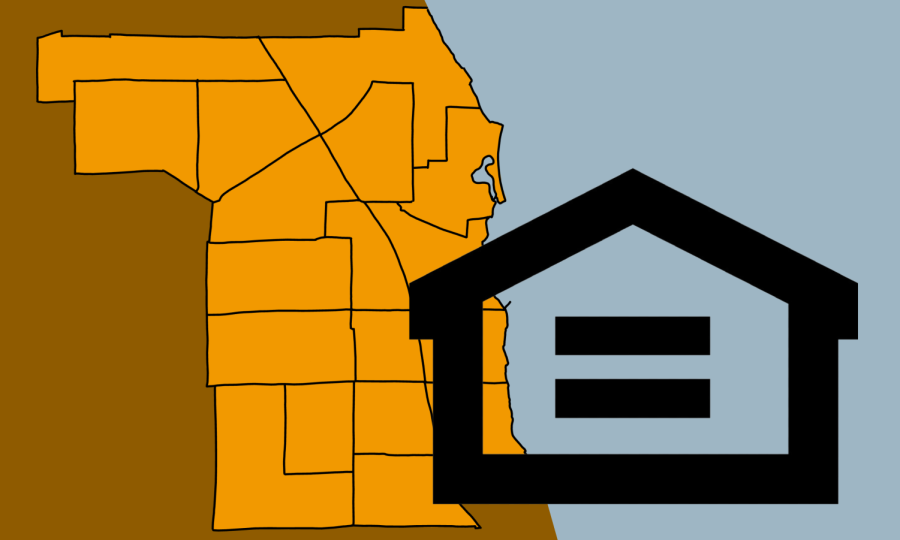Here’s what changes to Evanston’s Fair Housing Ordinance could mean
Daily file illustration by Gemma DeCetra
Councilmember Devon Reid (8th) is chair of the Just Cause task force, a committee created to review new proposed amendments to city housing ordinance.
January 11, 2023
After Evanston banned housing discrimination based on most criminal records, advocate Gail Schechter didn’t see much coverage that she felt accurately represented the issue.
“It’s all this sort of loaded language that doesn’t really explain what really happened,” Schechter, the executive director of Chicago-based Housing Opportunities & Maintenance for the Elderly, said.
Last October, City Council amended the Fair Housing Ordinance to prohibit most housing discrimination based on criminal history and housing discrimination based on the actual or perceived status as a victim of domestic violence.
It does not apply to housing applicants convicted of crimes within the past three years or those convicted of child sex offenses who are currently under residency restrictions.
The amendment also requires landlords to complete a prequalification stage that can include screening for income, rental history and credit score before accepting or rejecting an applicant. Afterward, landlords can optionally complete a criminal history background check.
Schechter said the amendment was a necessary change.
“It’s talking about people who have arrest records a day past three years ago for offenses that have nothing to do with how good you would be as a tenant,” she said. “Recognizing that people have paid their dues at this point.”
Nevertheless, she said the attention the ordinance received shows problems with the way people tend to discuss those with criminal records, reflecting issues that linger even after reforms are complete.
Advocates also expressed worry over whether the reforms would be followed through with.
Javier Ruiz, an eviction prevention organizer at the Metropolitan Tenants Organization, said he was concerned about the amended ordinance’s housing applicant screening process.
“It’s kind of hard to pin down when someone violates the Fair Housing Ordinance because obviously, they’re not being overtly discriminatory, but they’ll do it in a sneaky way,” Ruiz said.
Sometimes landlords will not allow families with more than a few kids, pose application fees or charge families different application fees, he said.
For those facing hidden discrimination, advocacy groups like Evanston-based Open Communities are available to address violations of laws like the Fair Housing Ordinance.
Dominic Voz, the assistant director of Fair Housing at Open Communities, said the group can offer legal counseling services to those facing housing-related challenges.
They also help people decide on next steps, from helping to educate landlords or working with fair housing attorneys to file a legal claim.
“Open Communities is definitely ready to support community members who are facing housing discrimination in ways that the ordinance spells out,” Voz said. “We can help folks look into their situation and whether the law was in fact broken, and help counsel people to decide what are the next steps they want to take.”
Email: [email protected]
Twitter: @nedaziakim
Related Stories:
— The Daily Explains: What does it take to build or develop real estate in Evanston?
— Housing and Community Development Committee discusses contract renewals, affordable housing


